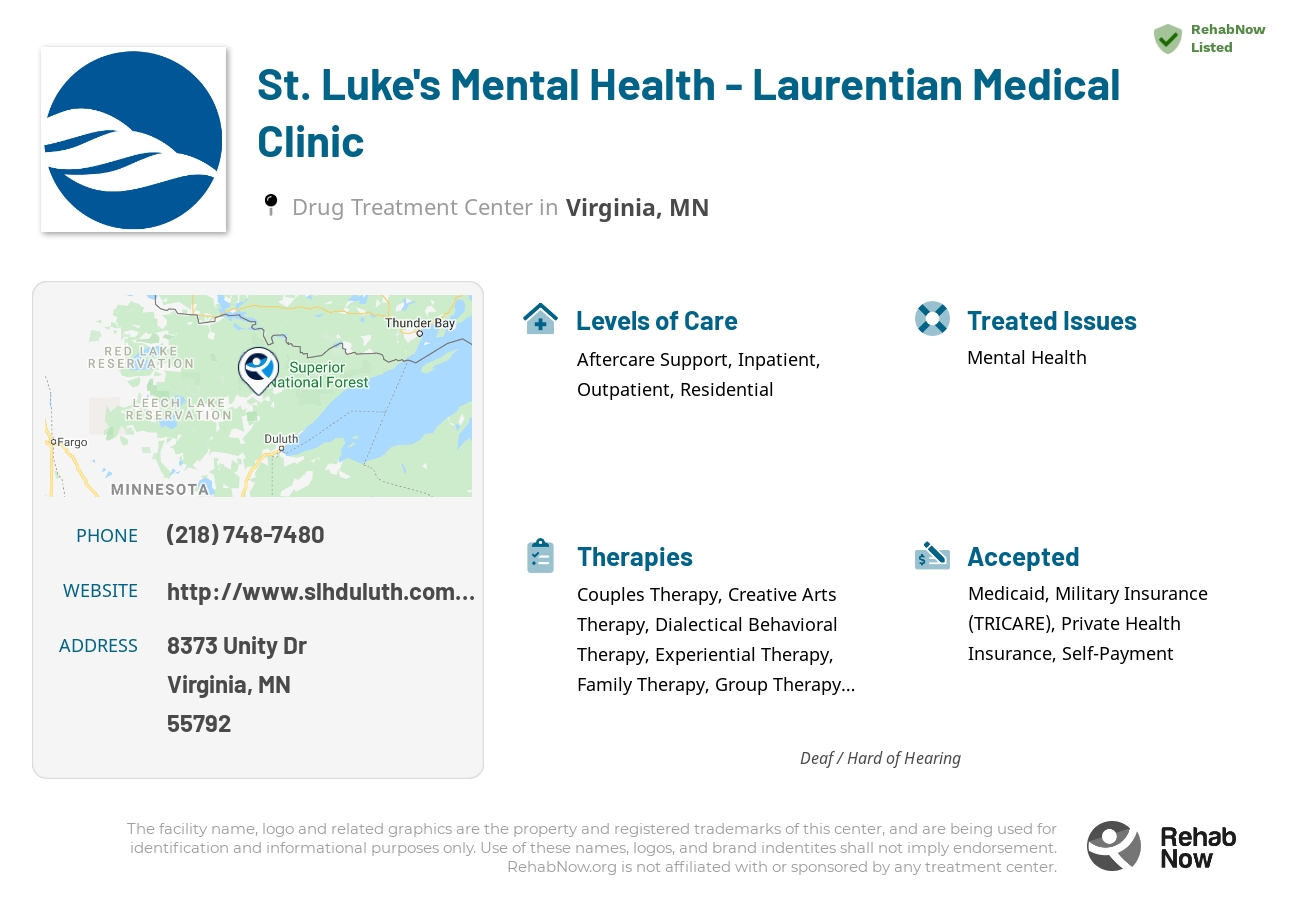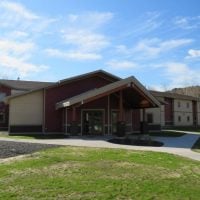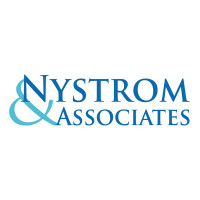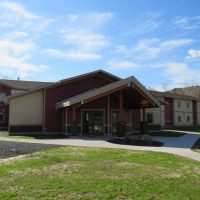St. Luke's Mental Health - Laurentian Medical Clinic
Drug Rehab Center in Virginia, Minnesota
The St. Luke's Mental Health - Laurentian Medical Clinic in Virginia, Minnesota is a comprehensive drug rehab center that offers a variety of tailored treatment programs, from aftercare support and residential care to inpatient and outpatient services, all of which are licensed by the state and can be covered by private health insurance for those who need it, so that anyone can access the highest level of care available and achieve sobriety.
About
St. Luke's Mental Health - Laurentian Medical Clinic, nestled in Mountain Iron, Minnesota, specializes in outpatient treatment for those grappling with mental health issues. This clinic stands out for its patient-centered approach and high-quality medical staff, offering innovative care including clinical hypnosis and biofeedback.
- Patient-Centered Focus: At the heart of their approach, ensuring the patient's needs are always a top priority.
- State-of-the-Art Care: Utilizes the latest in medical treatments and techniques to provide exceptional care.
- Comprehensive Services: Offers a wide range of services, including emergency and outpatient services, catering to various mental health needs.
Holding a State License certification, St. Luke's Mental Health - Laurentian Medical Clinic is recognized for its comprehensive and accredited treatment programs. Their dedication to medical leadership and providing a spectrum of services underscores their commitment to patient recovery.
The clinic addresses a variety of issues, including depression, anxiety, and major psychiatric illnesses, employing methods like clinical hypnosis and biofeedback. With outpatient services tailored to individual needs, they ensure accessible and effective treatment for those seeking sobriety and mental health support.
Genders
Ages
Modality
Additional
Accreditations
State License
Conditions and Issues Treated
Levels of Care Offered
This center offers a variety of custom treatment tailored to individual recovery. Currently available are Aftercare Support, Inpatient, Outpatient, Residential, with additional therapies available as listed below.
Inpatient treatment centers offer a safe, secure, and often medically supervised environment for drug or alcohol-addicted individuals. Many of these facilities are equipped to provide detoxification, treatment for co-occurring mental health disorders, and aftercare programs.
The patient typically spends 28 to 30 days at the facility and will receive extensive drug counseling. They will also learn how to live without drugs and how to make the right decisions in life.
An outpatient treatment program is set up to help with alcohol or drug addiction or a co-occurring disorder. The treatment must attend the treatment facility for their therapy and other programs but return home each night. The frequency of mandatory attendance decreases after much of the treatment program is complete. The treatment programs are monitored by the treatment facility and case managers who work for a judge or judge’s office. A treatment program may be performed out of a treatment facility, treatment clinic, or treatment center.
The benefits of outpatient treatment programs are many. One of the most beneficial treatment programs is that it allows treatment for clients who cannot afford or may not be able to attend treatment at a treatment facility, treatment center, or treatment clinic full-time. Another benefit of treatment programs is that they reduce crime rates because treatment allows people to treat their addiction.
Residential treatment programs are those that offer housing and meals in addition to substance abuse treatment. Rehab facilities that offer residential treatment allow patients to focus solely on recovery, in an environment totally separate from their lives. Some rehab centers specialize in short-term residential treatment (a few days to a week or two), while others solely provide treatment on a long-term basis (several weeks to months). Some offer both, and tailor treatment to the patient’s individual requirements.
Recovering drug addicts need aftercare support when they leave treatment. The support can include guidance through 12-step programs, outpatient rehabilitation programs, and support groups. Aftercare supports the individual in their desire to maintain sobriety by reducing relapse risk with positive choices.
The success of drug treatment does not end when the addict leaves the rehabilitation center. There is no such thing as a “one and done” type of rehabilitation process. Recovery is a lifelong journey that begins with treatment and continues by the addict committing to outside support groups or drug rehab programs.
When choosing a program, it is crucial to choose one that will provide long-term aftercare support. This ensures that you have the tools you need to sustain your recovery.
Therapies & Programs
Individualized Treatment is essential because it gives addicts the ability to participate in a program that meets their unique needs. An addict should work with professionals who understand what they’re going through, especially if the addict is actively using. Finding the right treatment program for an addict is difficult, but it’s even harder without communicating with those who have experience treating your specific situation.
Couples therapy is a treatment approach where the patients and their partners are engaged together. When a person becomes a victim of substance abuse, it affects the patient and his people, particularly his partner. Their relationship can become strained due to lack of communication, financial issues, loss of trust, lack of intimacy, and physical abuse in more severe cases. Couples therapy addresses these issues and tries to rebuild the trust between the partners. The partner’s involvement in the process will result in greater chances of treatment success and sustained recovery.
The therapies typically involve all family members, potentially including siblings, children, and parents who play a role in their daily lives. These sessions can be essential because they address past issues that may have affected an addict or alcoholic’s recovery process. They provide support during this time when it is needed most!
A family therapy session, often called a family meeting or intervention, is a necessary process that helps loved ones of addicts see their situation in a new light. It’s also one of the most challenging things families will ever have to do when they’re facing a loved one battling addiction or alcoholism.
Group therapy sessions provide recovering addicts with a chance to cope with everyday situations that many face. Group therapy sessions are held in rehab facilities, clinics, churches or community centers that offer drug addiction treatment.
People who attend these groups are encouraged to voice their feelings and support other addicts in recovery. This helps group members strengthen their own recovery program while cheering on others who are struggling with sobriety.
Dialectical behavior therapy, or DBT, is one form of cognitive behavioral treatment. This type of therapy typically involves both individual and group sessions with a therapist on a regular basis.
It uses concepts like mindfulness training to help addicts learn how to identify their thoughts, feelings, behaviors and the experiences that trigger them so they can avoid relapse. DBT also teaches addicts how to regulate their emotions, which can make it easier for them to avoid or overcome negative thoughts and cravings.
Cognitive Behavioral Therapy (CBT) is a highly effective treatment option based on the idea that how we feel, think and act all interact together. Our thoughts determine our feelings and behaviors; our feelings affect our thoughts, and our behaviors change our thoughts and feelings. CBT helps people explore their thoughts for problems (or false beliefs) that influence their mood and actions. By examining their thoughts and beliefs, people can recognize distorted or irrational and modify them to more realistic, positive ones. CBT is very goal-oriented, which means that the therapist and patient work together on a specific problem while learning to become more adept at solving future problems.
CBT works well with a broad range of people, including those with depression, anxiety disorders, eating disorders, and problems with anger. In addition to helping a client focus on thoughts that can be changed, CBT also allows them to take an active role in their treatment. This is called a collaborative approach because both patient and therapist work together to produce the best possible results.
CBT is based on cognitive learning theory, which says that our behavior is a learned response to our environment. Cognitive refers to thoughts and beliefs, while behavioral relates to actions or deeds. CBT helps people learn ways of behaving to improve their quality of life by focusing on specific problems or goals they want to achieve. Sometimes, CBT is used alone; other times, it is combined with medications or brief counseling techniques such as solution-focused and motivational interviewing to achieve optimal results for the patient.
Patient Experience
Creative Arts
Creative arts therapy is not a new form of therapy. It has been practiced for over 100 years, using art as its main form of therapy. Initially used for children, over the past few decades it has been recognized as an effective treatment option for adults too. It is now practiced in psychiatric hospitals and drug rehabilitation centers worldwide.
Creative arts therapy may include painting, drawing, writing poetry or song lyrics to express oneself where words would fail to capture the true feeling. It is an outlet for personal expression in a safe environment without fear of judgment. Weaker outlets, such as writing poetry or song lyrics, may be used to explore emotions that are difficult to tackle head on in other ways. The creative process allows the patient to connect feelings and thoughts together which helps to balance their mental state.
Experiential Therapy at St. Luke's Mental Health - Laurentian Medical Clinic
Drug addicts can benefit from experiential therapy, which involves real-time activities to process trauma and emotions. This type of therapy is available at St. Luke's Mental Health - Laurentian Medical Clinic and can help reduce the need to resort to drugs and alcohol. Activities may include role-playing, use of props, and others. The individual learns to release suppressed thoughts that lead to negative feelings and embrace the present moment. Experiential therapy is beneficial in treating various disorders, including drug addiction, eating, and behavioral disorders.
Payment Options Accepted
For specific insurance or payment methods please contact us.
Is your insurance accepted?
Ask an expert, call (888) 674-0062
St. Luke’s Mental Health Associated Centers
Discover treatment facilities under the same provider.
- St. Luke's Mental Health - St. Luke's Hospital in Duluth, MN
- St. Luke's Mental Health - Lake View Medical Clinic in Two Harbors, MN
- St. Luke's Mental Health - Hillside Center in Duluth, MN
- St. Luke's Mental Health - Hibbing Family Medical Clinic in Hibbing, MN
- St. Luke's Mental Health - Denfeld Medical Clinic in Duluth, MN
Learn More About St. Luke’s Mental Health Centers
Additional Details
Specifics, location, and helpful extra information.
Virginia, Minnesota 55792 Phone Number(218) 748-7480 Meta DetailsUpdated April 15, 2024
Staff Verified
Patient Reviews
There are no reviews yet. Be the first one to write one.
Virginia, Minnesota Addiction Information
Minnesota is fighting an opioid epidemic that is leaving hundreds of its residents dead each year. Both prescription opioids and illicit opioids are widely abused in the Land of 10,000 Lakes. Heroin continues to be one of the most commonly abused drugs in the state, if not the most common illicit drug. Over 10% of all treatment admissions in Minnesota list heroin as their drug of choice.
The severity of drug or alcohol addiction in Virginia, MN, varies depending on the person. In 2011, there were 2,023 hospitalizations due to drug abuse or dependence in Virginia, MN. Many people who struggle with addiction also have mental health disorders, making recovery more complex. The types of treatment available in Virginia, MN, can vary depending on the facility but may include inpatient or outpatient rehabilitation and detoxification services.
Treatment in Nearby Cities
- Little Falls, MN (136.3 mi.)
- Ogema, MN (160.0 mi.)
- Rush City, MN (128.1 mi.)
- Sawyer, MN (58.6 mi.)
- Albert Lea, MN (270.5 mi.)
Centers near St. Luke's Mental Health - Laurentian Medical Clinic
The facility name, logo and brand are the property and registered trademarks of St. Luke's Mental Health - Laurentian Medical Clinic, and are being used for identification and informational purposes only. Use of these names, logos and brands shall not imply endorsement. RehabNow.org is not affiliated with or sponsored by St. Luke's Mental Health - Laurentian Medical Clinic.









